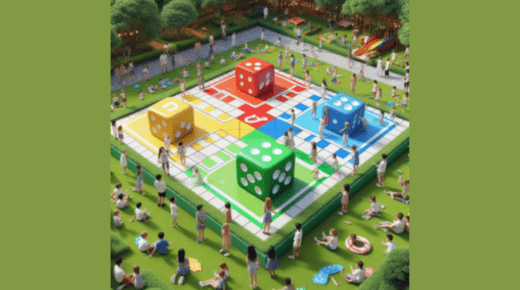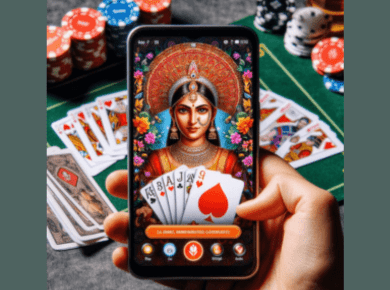From Board to App: Ludo’s Journey in the Digital Age

Ludo, a beloved board game enjoyed by generations, has embarked on an exciting journey into the digital age. With the advent of smartphones, tablets, and online platforms, Ludo has transitioned from traditional board gameplay to innovative digital experiences and also ludo real money games. This evolution has not only preserved the game’s classic charm but also introduced new possibilities for players worldwide. Let’s explore how Ludo has embraced digital transformation and its impact on the gaming landscape.
The Traditional Charm of Ludo
Originating from the ancient Indian game Pachisi, Ludo has long been cherished for its simplicity, strategy, and social nature. Played on a colourful board with four coloured zones, players race their tokens to the home column, navigating through safe zones and capturing opponents’ tokens along the way. The game’s appeal lies in its easy-to-learn rules and the excitement of rolling the dice, making it a staple for family gatherings, social events, and leisure time.
Digital Revolution: Ludo Goes Online
The digital revolution has revolutionized how Ludo is played and experienced. Online platforms and mobile Ludo apps have made the game accessible anytime, anywhere, transcending geographical boundaries and time constraints. Players can now enjoy Ludo with the best Ludo players from around the globe, fostering a global community of Ludo enthusiasts.
#Features of Digital Ludo:
1. Multiplayer Modes: Online Ludo platforms offer multiplayer modes that allow players to compete against players worldwide in random matches. This connectivity enhances competitive spirit and ludo skills, maintaining the game’s essence of fun and camaraderie.
2. Real-time Gameplay: Digital Ludo provides real-time gameplay experiences, allowing players to roll the dice, move tokens, and interact with opponents seamlessly. Advanced algorithms ensure fair gameplay and smooth performance, enhancing the overall gaming experience.
3. Global Tournaments and Leaderboards: Online platforms host mega tournaments and leaderboards where players can compete for top rankings, earn achievements, and showcase their skills. These competitive features add an element of challenge and motivation, encouraging players to improve their strategies and gameplay.
4. Accessibility and Convenience: The accessibility of digital Ludo on smartphones and tablets allows players to enjoy the game on the go. Whether commuting, relaxing at home, or during breaks, Ludo’s digital adaptation offers convenience without compromising on gameplay quality or entertainment.
The Future of Ludo: Innovation and Expansion
As technology continues to advance, the future of Ludo holds promising possibilities for innovation and expansion. Augmented reality (AR) and virtual reality (VR) technologies may enhance the immersive experience of digital Ludo, blending virtual gameplay with real-world environments. Integration with voice commands, AI opponents, and social media sharing features could further enrich the gameplay experience, catering to evolving preferences and expectations of players.
Conclusion
Ludo’s journey from traditional board gameplay to digital platforms exemplifies its enduring popularity and adaptability in the digital age. Embracing technological advancements has not only preserved the game’s timeless charm but also opened new avenues for global connectivity, competitive gaming, and personalized experiences. Whether played on a physical board or through a mobile app, Ludo continues to unite players, foster gaming, and provide hours of fun and excitement. As Ludo evolves with technology, its legacy as a beloved game remains steadfast, promising a future filled with innovation and enjoyment for generations to come.

